Practical Organic Gardening in Retail
It is amazing how far science has taken the products we have available to us to impact plant growth. The agriculture industry has pioneered most of these breakthroughs, but more and more of these technologies are making their way into gardening products for the horticulture world.
Products that boost a plants natural immune response as a biostimulant go a long way to helping all gardeners be more successful.
Newer products like biochar add another dimension of soil productivity, providing a boost to the water and nutrient holding capacity of soil, as well as building up the living soil component of the rhizosphere (the area around plant roots populated by soil microbes feeding off root exudates) by providing a home for soil microbes.
Living soils make for better soil rhizosphere and when we amend our soils with compost, soil amendments, and fertilizers we build up that soil ecosystem.
You are what you eat. While a little cliché, it makes a good point. What we put into our bodies is the fuel that keeps us going. Eating food is the all-inclusive unifier. Breaking bread with friends and family is one of the greatest joys in life. Breaking bread while enjoying food you grew yourself? Priceless!
Why should people garden organically you might ask? Organic gardening has many benefits in the vegetable garden and edibles in the landscape, but it reaches far beyond this basic function. When gardeners tend to their gardens with an organic mindset, they have an impact on local ecosystems.
An organic garden helps provide food sources for insects and animals up the food chain. Momma birds have to find up to 200 caterpillars a day to feed each baby bird! Caterpillars can be plentiful in an organic garden, not just as food sources for birds but also as future pollinators — just one example of how organic gardens impact local ecosystems. Organic gardening methods can also help build soil structure, so your soils will absorb more water and hold it there for your plants.
I think people don’t give themselves enough credit for having an organic garden. While the acts of one household may seem like a drop in the bucket, each of those gardens is an island, or oasis, within a greater landscape. Over time those islands grow into communities, communities connect into regions, and regions connect the greater landscape.
Each gardener gets to choose what to use to grow their plants. Personal preferences shape what products get purchased at garden centers, and more and more gardeners are choosing organic methods of cultivating plants, especially when it comes to edibles.
Selecting the Right Products
The nutritional content of our food is directly related to the quality of the soil we grow in and the inputs that are used to help the plant reach maturity. When determining the mix of organic products to stock on your shelves, look for OMRI-listed products. OMRI is the Organic Materials Review Institute, an independent third party non-profit that will examine garden inputs and verify they meet National Organic Program guidelines and standards. Only products that meet this vigorous testing program can be OMRI Listed.
While certified organic ornamental plants are somewhat rare, certified organic edibles are widely available. Look for USDA certified organically grown edibles to provide your customers, or grow your own using organic methods. If you aren’t certified organic by the USDA, you can’t advertise them as organic edibles; however, you can say you grew them locally without any pesticides or chemicals.
Knowing what cultivars interest today’s organic gardener is a bit of an art form.
Watching all forms of social media may give a glimpse of what people are craving, but it helps to partner with a quality supplier. Suppliers with their finger on the pulse of the industry are constantly researching the latest trends to stay ahead of the curve when it comes to choosing the right mix of cultivars.
I’ll acknowledge that USDA certified organic starter plants may not be available locally in all markets, but these days you can get plants shipped by FedEx/UPS from quality suppliers. This can be especially economical if buying plugs to grow on at your own facility. Then as an added bonus, your customers will love you even more for the grown-in-house plants.
Become a Resource
You want to be known in the local community for being the go-to source for all things organic so people come to you for great advice and products. Because if you don’t, and your organic section is tiny, that almost guarantees an organic gardener will remember and either not come back, or rarely shop your store for organics/edibles.
Is there an average organic gardener? How do you determine their buying preferences? Certainly when it comes to edibles, the trend is gardeners prefer organic gardening methods. This applies to all edibles, including veggies, fruiting plants, and herbs. Further, when making purchasing decisions, they prefer organic products that “do more.” Companies that communicate this messaging well, and provide transparency on product ingredients and production methods are capturing today’s organic gardener at the IGC. By capturing I mean capturing their attention, time and money!
Product packaging should share this messaging on the bag for ease of connecting with customers. “Doing more” can also mean the company has strong core values, like growing food for the local food bank, or giving back to the local community in some way.
Do you “do more” at your garden center? Do you share this message with your customers? If you show transparency and communicate your work of “doing more and doing good,” you should see further engagement with your customer base.
A lot of new gardeners are drawn into gardening for the interest in growing their own food and herbs. Once you have their attention, make sure you’ve stocked the shelves with everything they need to be a successful organic gardener. Seed starting supplies, seeds, soils, fertilizers, pest controls, plants and tools that make an organic gardener’s life easier are all must haves.
Organics and edibles are a gateway into flowers (have to have flowers to bring in the pollinators), woody plants (more wildlife support and four season garden interest), and eventually into items like outdoor furniture as the customer matures. Catching someone’s interest will get them coming back time and time again if they have a good customer experience and feel going to your store is an adventure and a fun experience.
Getting Staff on Board
Consider having an organic champion (or two) on staff to help with customer questions and build trust with customers. Encourage them to stay on top of the latest university research — both domestically and internationally. When staff start quoting university published research, your store starts looking incredibly smart and will be valued by your customer base. There will be gardeners of all experience levels shopping your organic offerings.
Having staff be prepared to have conversations with gardeners is key to getting new gardeners to learn it’s OK to make mistakes, that no gardener knows everything, and there is always more to learn.
We all know it can be hard for some staff members to suggest customers buy more products, especially with the seasonal help that may be new to gardening themselves.
In that case, it may make sense to choose certain items to require staff to ask customers about at check out. “Did you need any potting soil today?” “Do you need any compost today for your planting project?” These are basic ideas that can help increase sales at the register. Consider putting empty bags or a master list of soils, mulch and amendments on the wall near checkout so customers can simply point to the size and brand they want.
When talking with customers and educating them on what they need to buy from you to improve their chances of success in the garden, I like to think of the process as just starting a conversation.
Why not start by talking about soils? The soil is a common bond with all gardeners. All gardens need healthy soil to thrive, and gardeners need to take care of their soil by adding amendments each year. Feeding soil microbes with sources of organic matter and organic fertilizer leads to healthier plants and more productive soils.
A good way to start the conversation is talking about your own garden or gardening experiences. Use first person, and share how you amend your soil, something like “Our clay/sandy soil needs amendments to break it up and improve water infiltration. In my garden I find I need to add (insert the product you want to sell here) each year to improve plant growth and get more flowers/ foliage/fruit.”
In the end, gardeners like to be practical. The products and services you offer your customers should make it easy for them to be successful in the garden.
When gardeners are successful they “catch the gardening bug” and will always come back for more. Being prepared for them ensures they will make your store their go-to place for finding plants and supplies.
In today’s market, how can you afford not to be prepared for this growing segment of organic gardeners?
If you build it, they will come. And come back. Again, and again, and again …

 Mark Highland, “The Organic Mechanic,” owns and operates The Organic Mechanic Soil Co. With academic training in environmental horticulture, composting and potting soil, Highland is a sought-after speaker at garden centers, trade shows and similar venues to promote, educate, and inspire others to the many rewards of organic gardening. He is also a member of GPN’s 40 Under 40 Class of 2017. He can be reached at
Mark Highland, “The Organic Mechanic,” owns and operates The Organic Mechanic Soil Co. With academic training in environmental horticulture, composting and potting soil, Highland is a sought-after speaker at garden centers, trade shows and similar venues to promote, educate, and inspire others to the many rewards of organic gardening. He is also a member of GPN’s 40 Under 40 Class of 2017. He can be reached at 
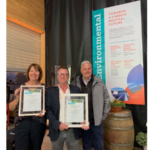



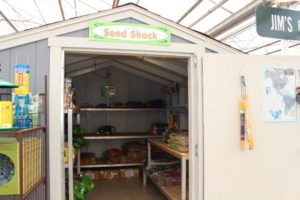
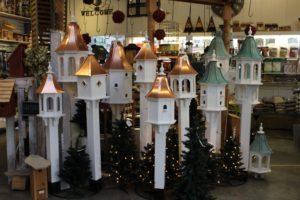
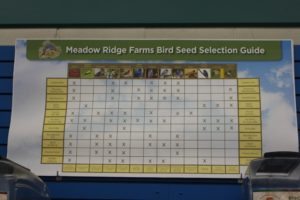
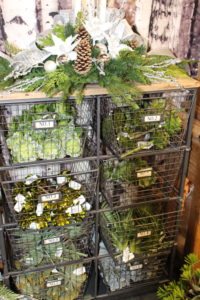

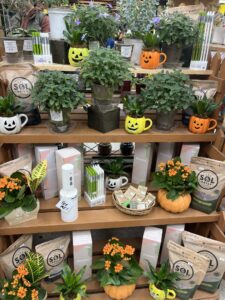

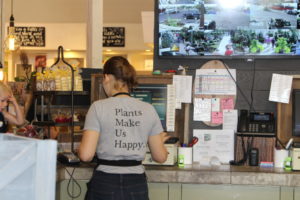
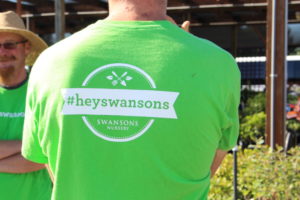

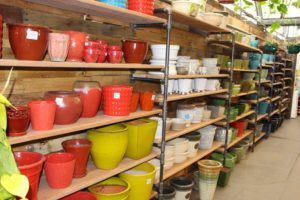
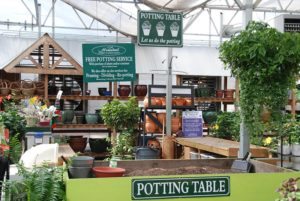
 Videos
Videos





